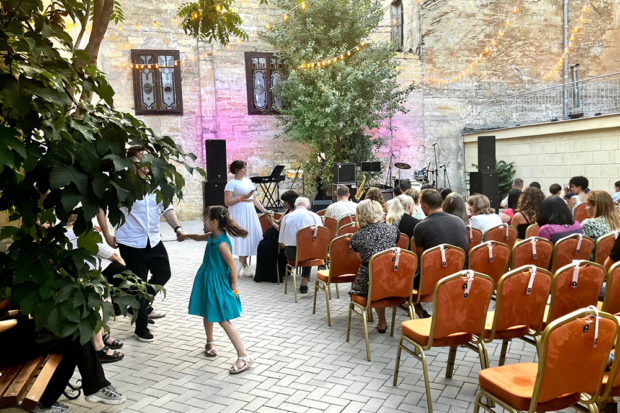
On Aug. 14, Odesa faced yet another Russian military assault in the middle of the night. The Russians attacked the southern seaport with 15 Iranian-made Shahed drones and eight Kalibr missiles damaging nearly 300 structures, including 30 historical and cultural landmarks. All affected buildings were located in residential areas. Hundreds of windows shattered. Balconies got twisted, parked vehicles burnt.
In the morning, the streets downtown were covered with shattered glass, crunching underfoot. The city’s residents and communal services worked hours to clear debris from pavement and patch broken windows with film and cardboard.
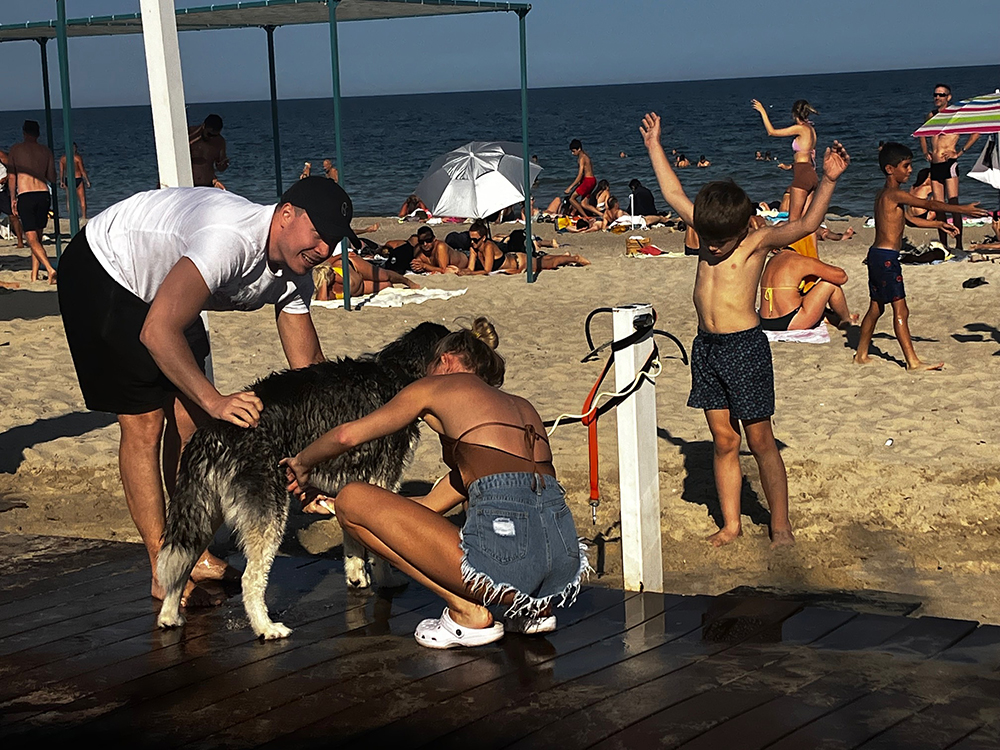
Several medical facilities, including a maternity hospital, an OB-GYN clinic and two dental clinics, also suffered damage. Numerous educational and cultural institutions suffered, including the Odesa College of Arts dormitory, the Museum of Ukrainian Books within the Odesa Scientific Library, production facilities of the Odesa National Academic Theater of Opera and Ballet, and five Ushynsky Pedagogical University campus buildings.
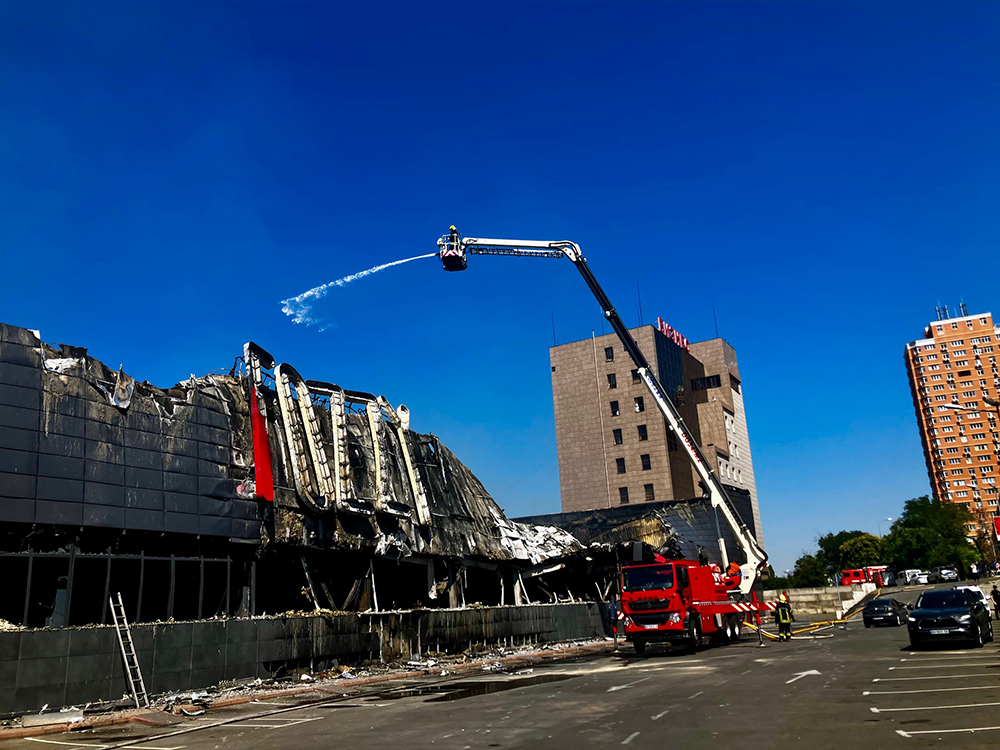
A former girls’ school building, dating back to the late 19th century and renovated recently, had a partially collapsed ceiling. A gymnastics hall at a children’s sports school and a downtown music school reported interior decoration and structural damage.
The music school, named after the Russian composer Alexander Glazunov, was preparing for the new school year. Upon arrival in the morning, the staff found ceilings and glass scattered over pianos and classrooms, with portraits of the Russian composers Pyotr Tchaikovsky and Sergei Rachmaninov gazing from the walls.
In an interview, renowned Ukrainian opera director Oksana Taranenko said that she believed Russian classical music, opera, ballet and other aspects of “great Russian culture” have been weaponized by Putin’s government to spread Russian influence and whitewash the criminal actions of the Kremlin.
Taranenko argues that until the Russian military invasion ends and reparations are made, the world should consider Russian culture part of the expansion and boycott it.
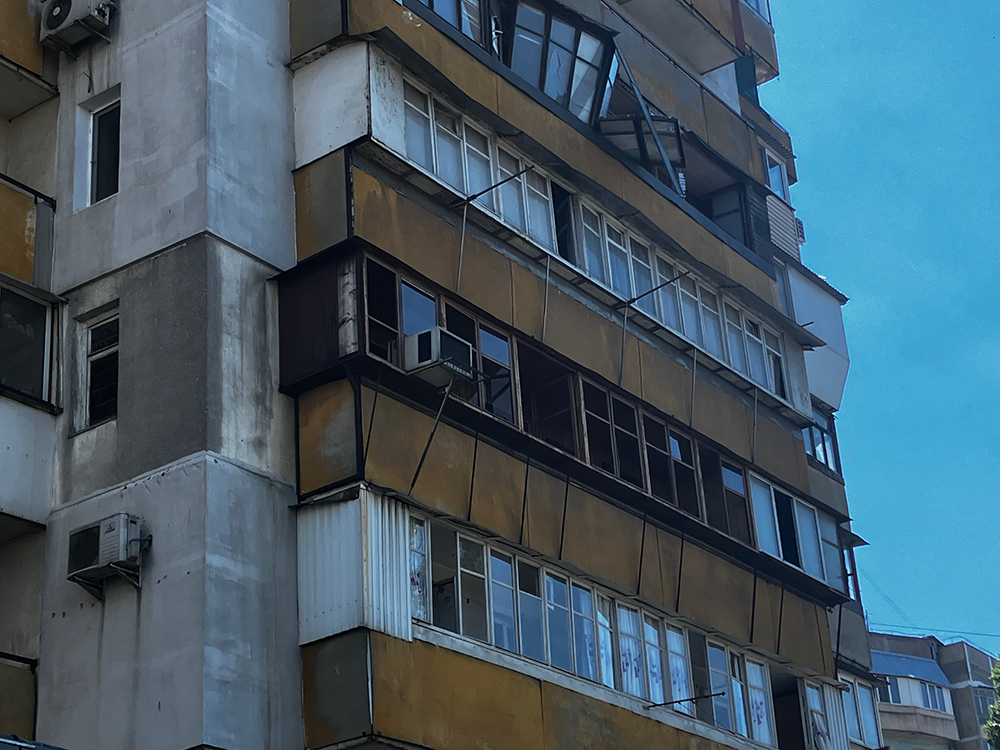
A piano professor at the music school in Odesa disagreed. “Russian classical music belongs to the world,” she said, standing in the classroom damaged by the shock wave.
“Tchaikovsky, reportedly, was of Ukrainian descent, by the way. And they have nothing to do with the war started by Russian President Putin, so I will still play and teach their masterpieces.”
Since the beginning of the full-scale Russian invasion, public opinion regarding the Russian cultural presence in Ukraine and worldwide has been changing dynamically, not to say dramatically. Taranenko’s position on banning and boycotting Russian classics is not universally supported in Ukraine but has become increasingly popular thanks to actions by the Russian military.
Five minutes’ walk from the Glazunov music school, the night attack wrecked the roof of a student dormitory on Tolstoy Street, named after the Russian writer Leo Tolstoy, the author of the iconic Russian novel War and Peace. Tolstoy Street, covered in a thick layer of crystal glass, does not just hold macabre historical allusions. It offers a poor argument in favor of Russian culture. Tolstoy, the master of metaphor, could not come up with a better image.
Shards and splinters covering the pavement have another, rather pedestrian, aspect, posing hazards for animals, particularly cats, cherished in Odesa. The feline community traditionally kept pests at bay in the port city.
Odesa street cats are well-fed, often chipped and neutered. Many streets offer cat houses for cold weather.
Noise from explosions and car alarm systems triggered by the shaking ground also pose hazards. Many owners speak of the stress experienced by their pets during the attacks.
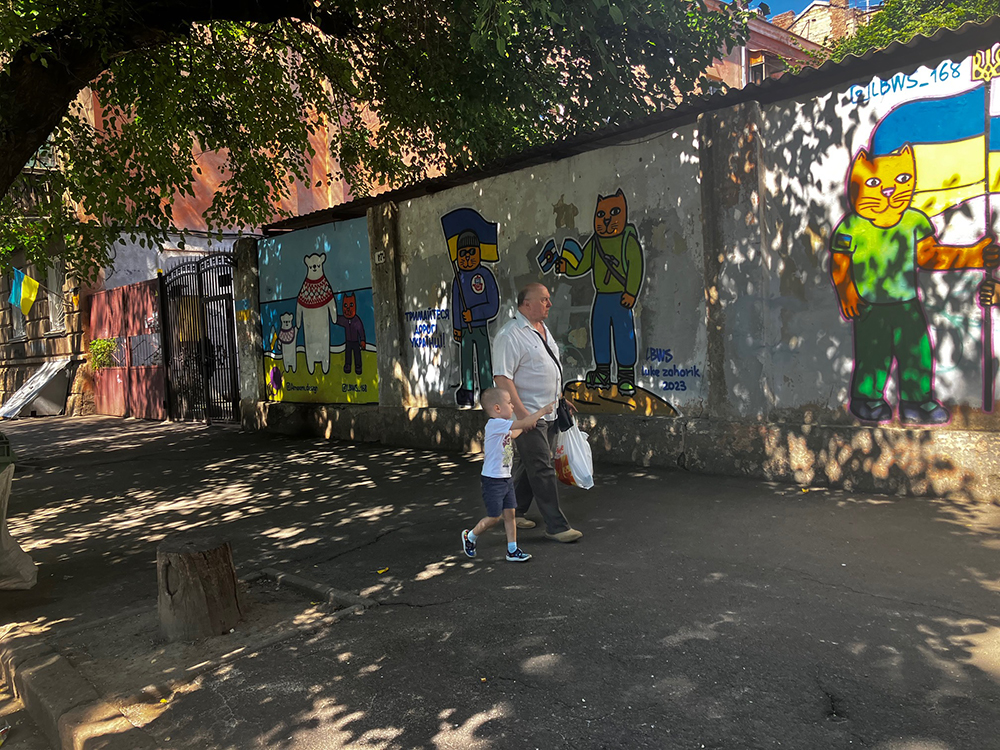
Vlad, a pet store employee, reported his three dogs panicking and hiding under the bed during air raids. Around Tolstoy Square, at least two dogs and one cat fled in fear during the attack, and were later reported missing.
The Russian military resorted to its favorite tactics. “First, drones were launched to find our air defense locations. Then, they launched Kalibr missiles and then drones again,” said Natalya Humeniuk, head of the joint press center of the Ukrainian military’s Operational Command South.
While Ukrainian air defenses successfully shot down drones and weapons, large amounts of debris fell, injuring people and animals, destroying and damaging buildings, and igniting fires. A piece of a Russian missile struck the roof of a wholesale Costco-type supermarket cherished in Odesa for its affordability and delicious food.
The massive fire destroyed the building, which also housed a pet store, an ecologically friendly dry cleaner and other services. Three employees were injured, with two hospitalized. The fire was extinguished by morning.
Across the street, high-rises displayed shattered windows and twisted balconies. The Russian government–funded propaganda channels spread a false narrative through mass and social media, claiming a Ukrainian air defense missile hit the Fozzy supermarket.
The Center for Countering Disinformation reported a video circulating online, allegedly from a local social media group, claiming that two Ukrainian anti-aircraft missiles veered off course and struck the supermarket. However, the video depicts a Ukrainian air defense missile hitting a Russian missile in midair, with pieces of the latter then landing on the supermarket roof.
“Fozzy was a supermarket I used to go to 20 years ago during times of financial scarcity,” said Julia Gorodetskaya, a Ukrainian-American journalist and volunteer native to Odesa. “Those visits were like a holiday. The food there looked beautiful and was especially tasty.”
She divides her time between New York and Ukraine during the war. Recently, she co-organized several fundraisers, including one for another music school destroyed by a Russian bombing. She got notoriety in Odesa after her social media post went viral.
After terrifying air raids that damaged her building, Gorodetskaya repeated the motto of the Ukrainian resistance with an Odesa twist. In the first days of the war, outnumbered and facing death, Ukrainian border guards refused to surrender to a Russian military ship. Instead, they advised the ship to proceed to a different destination, coining the infamous “Russian military ship, go f— yourself.”
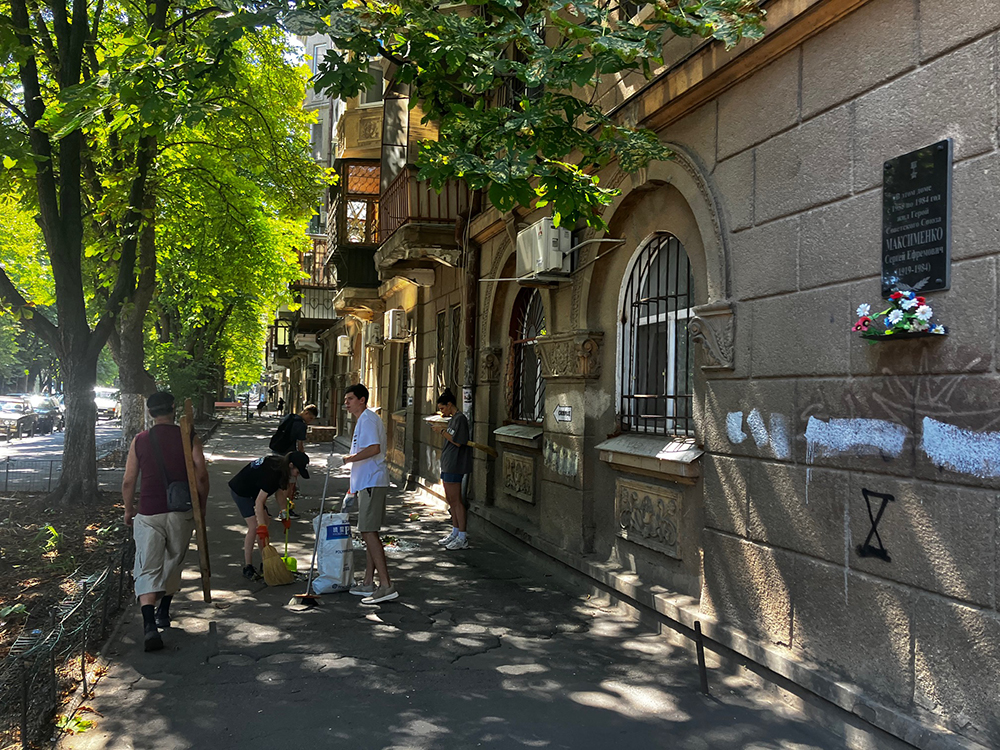
Fifteen months later, Gorodetskaya applied flaming red lipstick to her pale face from sleepless nights, snapped a selfie and added the caption, “You want Odesa?! Go f— yourself!”
Throughout July and August, Odesa experienced multiple assaults by Iranian-made Shahed drones and missiles. The downtown area, a UNESCO heritage site, suffered extensive losses.
The area saw hundreds of architectural monuments damaged or destroyed and civilians killed and injured. In July, nightly attacks demolished a historic Orthodox cathedral, critical infrastructure and port facilities.
Denise Brown, UN mission coordinator in Ukraine, stated that “this is another clear violation of international humanitarian law, where civilians and civilian infrastructure that is clearly destroyed are not part of the war. And buildings like this cultural heritage site are key to Ukrainian identity and culture.”
As reflected by Gorodetskaya’s meme, despite massive attacks, Odesa’s morale remains strong. After a year and a half of closure, Black Sea beaches partially reopened on a Sunday just before the attacks. Families flocked to the beach to swim, play games, picnic and enjoy smoothies, ice cream and seafood at beachfront cafés while listening to light music mixed with air raid sirens.
On weekends, Odesites attend multiple art exhibitions at museums (some damaged and renovated), relish jazz and classical music at open-air venues and attend traditional Sunday concerts at the city garden. Theaters and circuses are open, and the amusement park overlooking the sea is alive with bright lights and vibrant energy.
The southern city transformed its signature joie de vivre in the face of death into the ultimate resistance. A familiar tune, played beneath the shady acacias, becomes a spell, “Oh Odesa, the pearl by the sea, you knew lots of grief…Oh Odesa, the green southern land, live! Live and blossom!”

